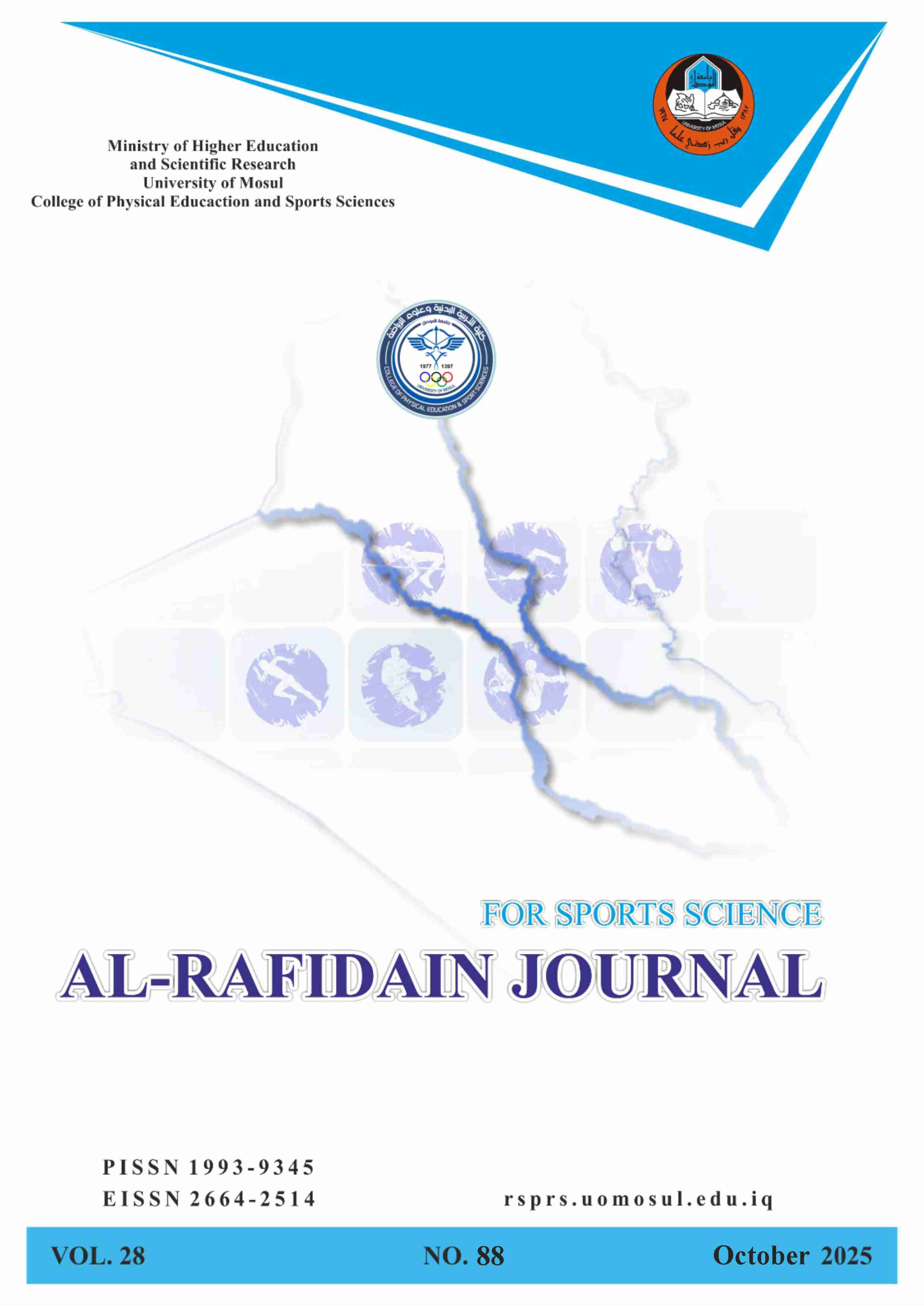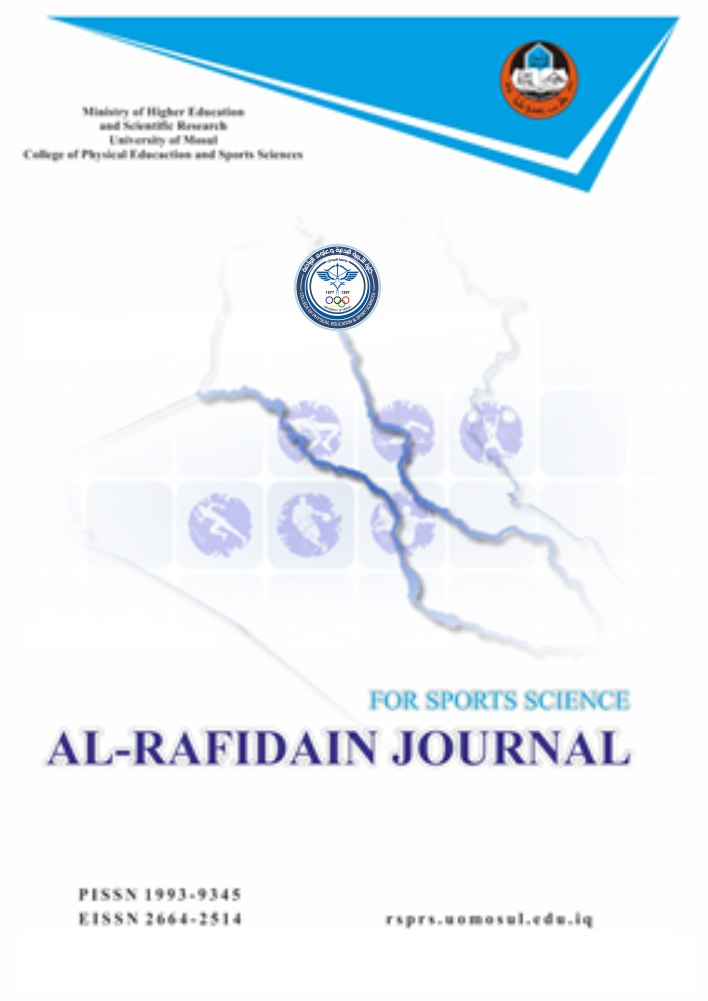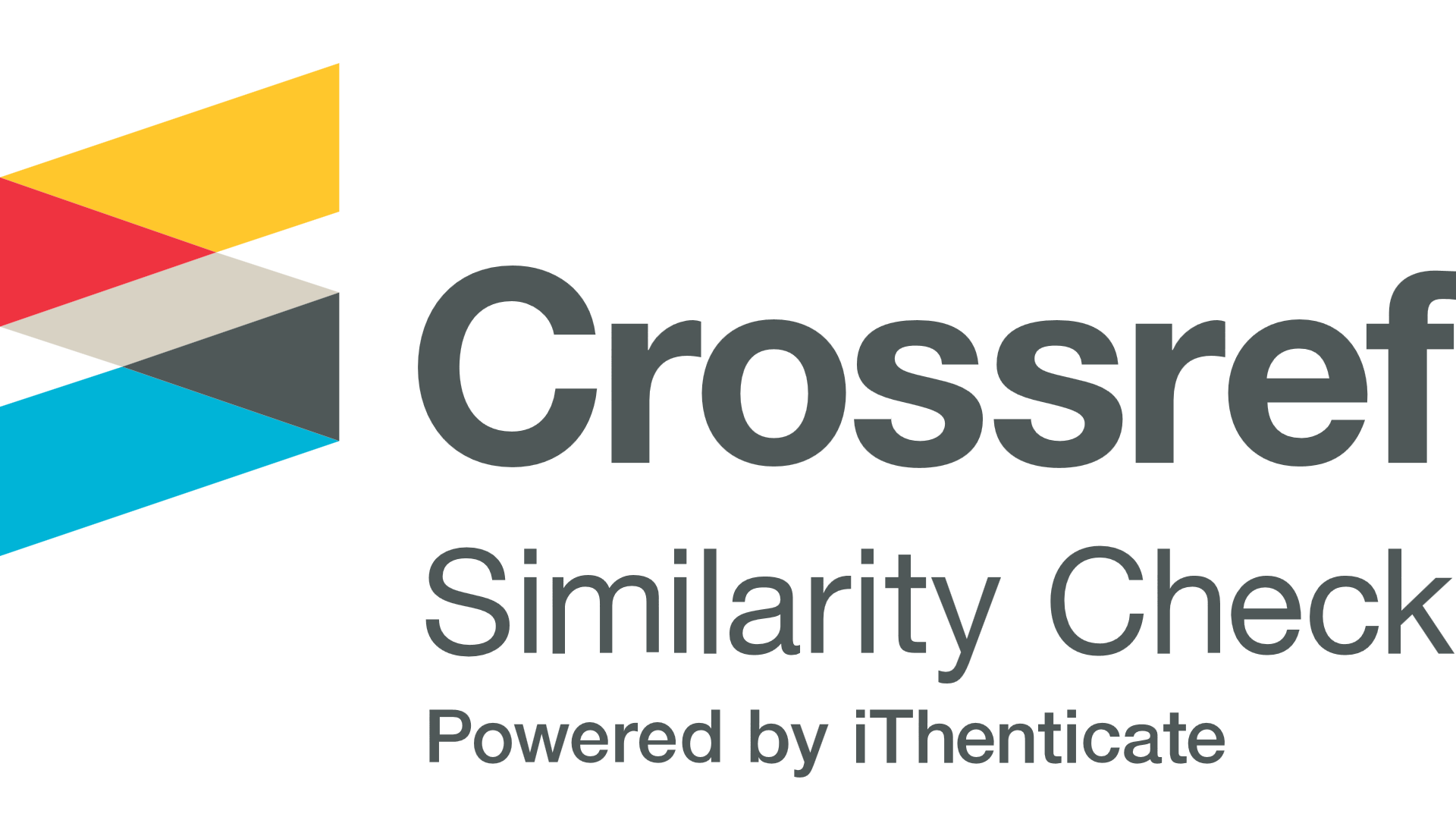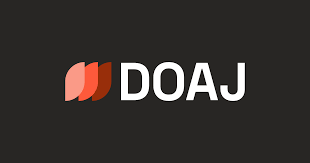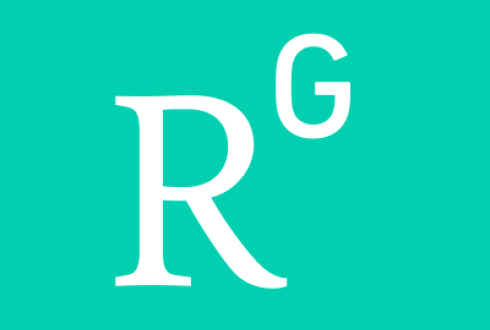The Effect of Using Reverse Learning in Acquiring Technical Performance and Achievement in the Long Jump Event
Published
Oct 24, 2025Pages
66-99Abstract
The importance of this study lies in understanding how reverse learning affects the process of acquiring and achieving performance in the long jump among college students efficiently, saving time and effort. It also aims to highlight its positive impact on reaching desired learning outcomes and improving students’ performance levels within the college environment.
Therefore, using alternative (new) teaching methods is seen as the best way to move away from traditional approaches. Accordingly, the researcher decided to study the impact of the reverse learning method on students' learning and achievement in the long jump, aiming to find an effective teaching approach that helps instructors reach their educational goals efficiently and effectively.
The study aimed to:
- Examine the impact of using reverse learning and traditional methods on students' acquisition and achievement in the long jump event.
The researcher employed the experimental method. The study sample included 36 students, divided into two groups: 18 students in the experimental group, which used the reverse learning method, and 18 students in the control group, which used the traditional method. The sample was selected through simple random sampling (lottery method). The participants were matched based on age, height, and weight. The program lasted for seven weeks, with two sessions per week for each group, aligned with their respective learning methods. Each session was 90 minutes long. The researcher utilized several statistical tools that helped achieve the study's objectives.
The researcher reached the following main conclusions:
- Both teaching methods had a positive and effective impact on learning the long jump event.
- The reverse learning method outperformed the traditional method in learning the long jump event.
The reverse learning method outperformed the traditional method in performance achievement in the long jump event
References
- Ibrahim, M. A. M. (2003). Evaluation and Measurement in Physical and Sports Education. Al-Warraq Publishing, Amman.
- Bloom, B., et al. (1983). Evaluation of student learning: Formative and summative assessment (M. A. Mofti et al., Trans.). Macmillan Publishing, Egypt.
- Hanoona, A. H. M. B. (2004). The relationship between some mental abilities and the technical performance and achievement level of some basic volleyball skills among first division female club players (Unpublished master’s thesis). College of Physical Education, University of Mosul.
- Al-Heela, M. M. (1999). Instructional design: Theory and practice (1st ed.). Al-Seerah Publishing and Distribution, Amman.
- Al-Hamouli, N. M. Z. (1989). A study of the effect of a proposed program to develop muscular (kinesthetic) and visual perception on long jump performance level (Doctoral dissertation). Faculty of Physical Education, Alexandria, Helwan University.
- Al-Khayyat, D. Q. (1995). The effect of teaching strategy based on objectives and feedback on the skill performance level in handball (Doctoral dissertation). College of Physical Education, University of Mosul.
- Al-Rubaie, K., & Al-Mula, M. (1989). Physical preparation in football. House of Wisdom Press, Baghdad.
- Al-Kubaisi, R. S. F., & Al-Shouk, N. I. (2004). A guide to writing research in physical education. Baghdad.
- Razzaq, S. (1993). The effect of a model using audiovisual aids on motor performance in rhythmic gymnastics (Master’s thesis). College of Physical Education, University of Baghdad.
- Al-Talib, N. (1976). Principles of sports psychology. Al-Shaab Press, Baghdad.
- Al-Talib, T. N. M. (2001). The effect of using intensive and distributed practice methods in learning and transferring some gymnastics skills (Unpublished doctoral dissertation). College of Physical Education, University of Baghdad.
- Othman, M. A. (1990). Encyclopedia of track and field: Training, technique, education, refereeing. Dar Al-Qalam, Kuwait.
- Abdul-Hassan, W. S. (2018). Learning styles and their applications between teacher and learner. College of Physical Education, University of Babylon.
- Obaidan, D., et al. (1998). Scientific research: Its concept, tools, and methods (6th ed.). Dar Al-Fikr for Printing and Publishing, Amman.
- Allawi, M. H., & Radwan, M. N. (1994). Motor performance tests (3rd ed.). Dar Al-Fikr Al-Arabi, Cairo.
- Oudah, A. S., & Malkawi, F. H. (1987). Fundamentals of scientific research in education and human sciences. Al-Manar Library, Yarmouk University, Jordan.
- Mahjoub, W. (1985). Motor learning. University of Baghdad Press, Baghdad.
- Mahjoub, W. (2001). Encyclopedia of kinesiology: Learning and scheduling of sports training. Dar Wael Publishing, Amman.
- Majid, R. K., & Al-Ansari. (2002). Track and field. International Scientific House, Amman.
- Faraj, E. W. (1987). Experiences in games for children and adults. Al-Maaref Establishment, Cairo.
Identifiers
Download this PDF file
Statistics
How to Cite
Copyright and Licensing

This work is licensed under a Creative Commons Attribution-NonCommercial 4.0 International License.
